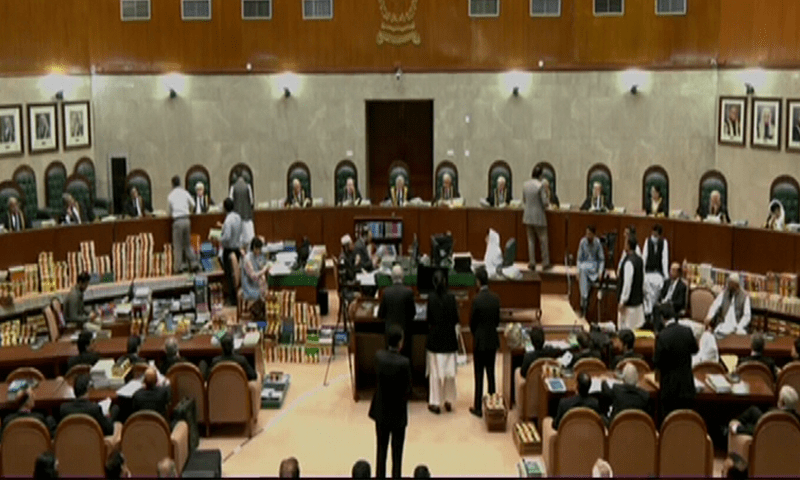Islamabad (Web Desk): The Supreme Court (SC) on Tuesday adjourned the hearing on a set of petitions challenging the (Practice and Procedure) Act 2023 till Wednesday.
The SC full court bench headed by Chief Justice of Pakistan (CJP) Qazi Faiz Isa, includes Justice Sardar Tariq Masood, Justice Ijazul Ahsan, Justice Syed Mansoor Ali Shah, Justice Munib Akhtar, Justice Yahya Afridi, Justice Aminuddin Khan, Justice Sayyed Mazahar Ali Akbar Naqvi, Justice Jamal Khan Mandokhel, Justice Muhammad Ali Mazhar, Justice Ayesha A. Malik, Justice Athar Minallah, Justice Syed Hasan Azhar Rizvi, Justice Shahid Waheed and Justice Musarrat Hilali.
The hearing is being streamed on live TV transmission, in accordance with SC previous directives.
During today's hearing, the CJP asked his fellow judges to allow lawyers to complete their arguments before questioning them after the counsels were repeatedly interrupted by the judges.
Muttahida Qaumi Movement-Pakistan's (MQM-P) lawyer Faisal Siddiqui completed his arguments during today's hearing.
Supreme Court (Practice and Procedure) Act 2023, which was passed by parliament in April, has been seen by the petitioners as an attempt by the government to curtail the chief justice's powers.
In April, the SC, led by the then CJP Umar Ata Bandial, barred the government from implementing the bill seeking to curtail the chief justice of Pakistan's powers once it became a law.
During the hearing on Monday, CJP Faez Isa observed that Parliament must not be hampered from doing something good merely because it lacks two-thirds majority.
In the previous hearing, the CJP questioned the many legal challenges to parliament’s legislative authority, noting that there had been much criticism of laws enacted by assemblies, but in the face of martial laws imposed in the country, there was always a complete surrender.
Justice Faez Isa had intended to wrap up the case the same day, but it was adjourned till Tuesday due to time constraints.
It is pertinent to mention that under the Practice and Procedure Act 2023, the committee of three senior judges has been given the authority to form benches for constitutional matters of public importance and suo motu notices.


